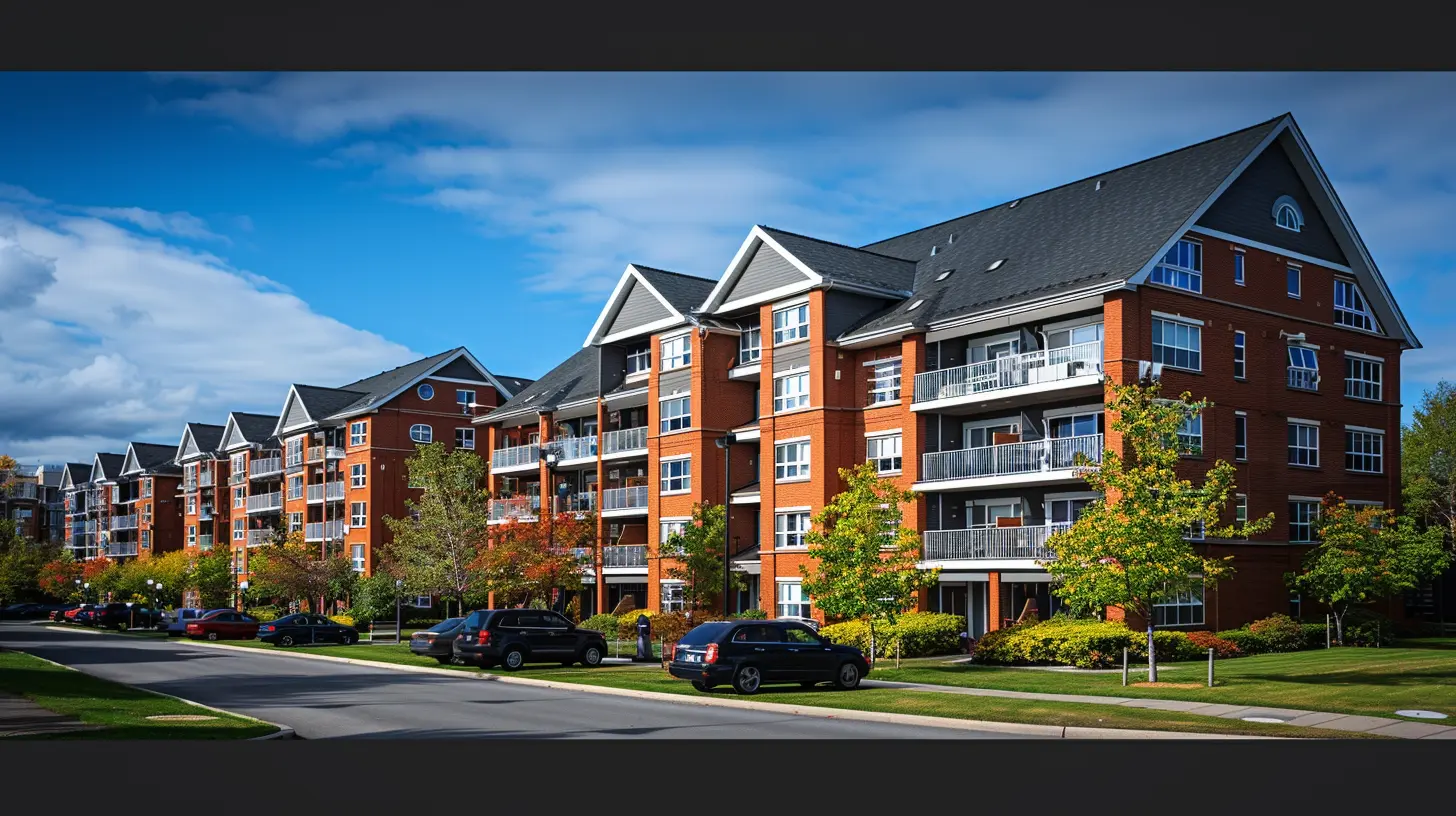The Impact of Smoking Policies on Your Rental Property
7 November 2025
When renting out a property, you have a ton of decisions to make. One of the most crucial (and sometimes overlooked) choices is whether or not to allow smoking in your rental. While some landlords don’t think twice before banning smoking, others might not see an issue with it.
But here’s the thing—smoking policies can have a huge impact on your rental property, from property value to tenant satisfaction to legal concerns. Let's break it all down so you can make an informed decision that benefits both you and your tenants.

Why Smoking Policies Matter in Rental Properties
Smoking isn’t just a personal preference; it carries financial, health, and legal implications. Allowing smoking in your rental could mean dealing with lingering odors, costly repairs, and even potential legal liabilities. On the flip side, banning smoking could limit your tenant pool.So, what’s the right move? Well, it depends on a few key factors. 
The Financial Toll of Smoking in Rental Properties
Most landlords are concerned about two things: protecting their property and maximizing profit. Let’s take a look at how smoking affects both.1. Increased Maintenance and Repair Costs
Cigarette smoke doesn’t just vanish into thin air—it sticks!Smoke seeps into walls, carpets, and furniture, leaving behind stubborn stains and odors. Even after a thorough cleaning, the smell can linger, making it difficult to rent out the unit to new tenants, especially non-smokers.
2. Decline in Property Value
Would you pay top dollar for a home that smells like stale smoke? Probably not.Properties with a history of indoor smoking often have lower resale values. Buyers and renters alike may avoid these homes because they assume there will be lingering smells, discoloration, and hidden damages.
3. Higher Insurance Premiums
Believe it or not, allowing smoking in your rental property can bump up your insurance costs.Smoking-related fires are a real risk. Insurance companies recognize this and often charge higher premiums for properties that permit smoking. In worst-case scenarios, an accidental fire could lead to damage that’s not fully covered by your policy. 
Legal Ramifications of Smoking in Rentals
Some landlords assume that tenants have a legal right to smoke in rental properties. Spoiler alert: They don’t.1. Your Right to Ban Smoking
As a landlord, you have the right to set smoking policies for your property. You can prohibit smoking indoors, on balconies, or even across the entire property. These rules should be clearly outlined in the lease agreement to avoid any confusion.2. Compliance with Local Laws
Laws regarding smoking in rental properties vary depending on location. Some cities and states have stricter regulations regarding secondhand smoke exposure in multi-unit buildings. Before implementing a smoking ban, check your local laws to ensure compliance.3. Liability Risks
If a tenant or visitor develops health issues due to secondhand smoke exposure, you could be held liable! Some tenants may even take legal action, claiming that secondhand smoke has negatively affected their health.By banning smoking, you reduce the risk of being caught in a legal battle down the road. 
The Impact on Tenant Satisfaction
Tenant satisfaction is everything in property management. Happy tenants stay longer, pay rent on time, and take better care of the property. But smoking policies can be a touchy subject.1. Appeal to a Wider Tenant Pool
Most renters prefer a smoke-free environment, especially families with children, elderly tenants, and individuals with health conditions like asthma.If you allow smoking, you may unintentionally turn away quality tenants who don’t want to deal with smoke odors or health risks.
2. Preventing Disputes Between Tenants
In multi-unit buildings, complaints about smoking can cause tension between tenants.Non-smoking tenants often complain about smoke drifting into their units from neighboring apartments, outdoor balconies, or shared spaces. This can lead to conflicts, lease violations, and eventual tenant turnover. A clear no-smoking policy helps prevent these disputes before they even start.
3. Setting Clear Expectations
If you decide to allow smoking, make sure your lease clearly outlines any conditions—such as only smoking in designated areas or keeping windows open when smoking indoors.If you choose to ban smoking, be firm about it and enforce penalties for violations. Make expectations crystal clear so everyone knows what’s allowed and what’s not.
Enforcing a No-Smoking Policy
So, you’ve decided to ban smoking in your rental—now what?1. Include a Clear Smoking Clause in the Lease
Your lease should explicitly state whether smoking is allowed, where it’s permitted, and what the consequences are for violating the policy. A strong lease is your first line of defense in enforcing the rule.2. Conduct Regular Inspections
Regular property inspections can help you catch rule violations early. If you notice signs of smoking, such as cigarette burns, lingering odors, or ashes, remind tenants of the policy and enforce penalties when necessary.3. Implement Fines for Violations
To deter tenants from breaking the rules, consider adding fines or lease termination clauses for repeated violations. If tenants know there are real consequences, they’re less likely to ignore the policy.4. Offer Smoking Cessation Resources
If tenants are struggling to comply with a no-smoking policy, providing resources (such as smoking cessation programs or support groups) can help. A little understanding can go a long way in maintaining a good landlord-tenant relationship.Alternatives to an All-Out Smoking Ban
Not ready to enforce a full ban? That’s okay! Some landlords find that allowing smoking in designated areas can strike a balance.1. Outdoor Smoking Areas
Consider setting up a designated smoking area outside the building. This keeps smoke out of the units while still giving smokers a place to light up.2. Smoke-Free but Vape-Friendly Policy
Some landlords allow vaping while banning traditional cigarette smoking. Since vaping doesn’t produce lingering odors or stains, it’s a middle-ground option worth considering.3. Air Purification Systems
If you allow smoking indoors, investing in high-quality air purifiers can minimize odor and residue buildup. While this won’t eliminate the problem completely, it can help reduce the impact.Final Thoughts: Should You Ban Smoking in Your Rental?
At the end of the day, the decision comes down to what works best for your property and tenants. While banning smoking can protect your investment and attract a larger pool of renters, some landlords worry about losing potential tenants who smoke.Whatever you choose, transparency is key. Make your policies clear, enforce them consistently, and ensure they align with local laws. In the long run, a well-thought-out smoking policy can save you money, reduce headaches, and keep your property in top shape!
all images in this post were generated using AI tools
Category:
Property ManagementAuthor:

Travis Lozano
Discussion
rate this article
1 comments
Velvet McKnight
This article presents a thoughtful analysis of smoking policies and their implications for rental properties. While banning smoking can enhance tenant satisfaction and reduce maintenance costs, it may also limit the pool of potential renters. Balancing these factors is crucial for landlords seeking to maximize their investment.
November 9, 2025 at 5:13 AM

Travis Lozano
Thank you for your insightful comment! Balancing tenant satisfaction and a broader rental pool is indeed key for landlords navigating smoking policies. Your perspective adds depth to this important discussion.


